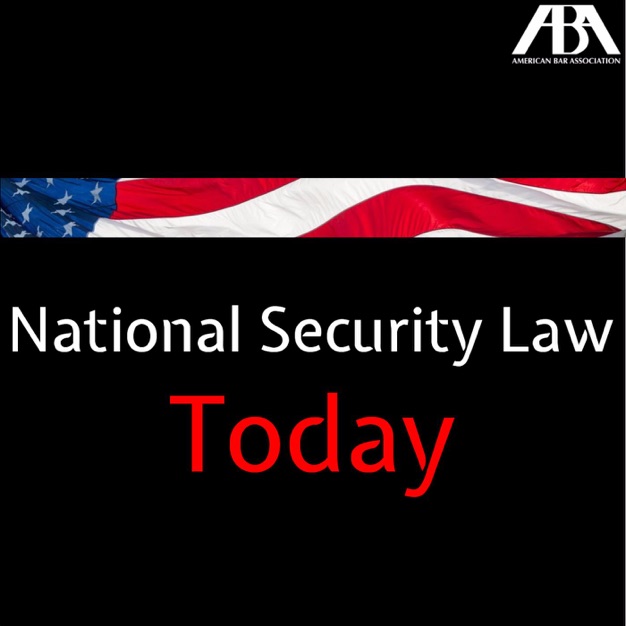
National Security Law Today
National Security Law Today
National Security Law Today brings legal experts discussing the hot topics and current issues in the world of national security law right to your phone. Get information and advice for lawyers, law students or interested parties who want to dig deeper into the law that protects the country.
- 43 minutes 30 secondsFrom 2024 to 2025: The Shifts Reshaping National Security with Harvey Rishikof
As the new year unfolds, how have 2024’s defining national security moments set the stage for what’s ahead? This week, Elisa Poteat is joined by Harvey Rishikof, former chair of the ABA Standing Committee on Law and National Security, for a big-picture review of the past year. Together, they discuss emerging challenges in geopolitics, AI’s growing role in defense, and pivotal shifts in data security. Looking ahead, they explore how economic instability and rising global tensions might define 2025.
Harvey Rishikof is a Senior Counselor to the ABA Standing Committee on Law and National Security
References:
The International Emergency Economic Powers Act (IEEPA)
7 January 2025, 3:17 pm - 45 minutes 16 secondsThe History and Impact of Recess Appointments with Neil Eggleston
How does a centuries-old constitutional power continue to influence the modern balance of government? This week, Elisa speaks with Neil Eggleston, former White House Counsel to President Obama, to delve into the history and controversies surrounding recess appointments. Together, they explore the historical roots of this executive power, landmark cases that have shaped its use, and its implications for the Senate's advice and consent role.
Neil Eggleston is a litigation partner in the Washington, D.C., office of Kirkland & Ellis LLP, and served as White House Counsel to President Obama from 2014 to 2017
References:
The Federal Vacancies Reform Act, 5 U.S.C. sec. 3345
23 December 2024, 8:01 pm - 37 minutes 33 secondsTikTok’s Legal Challenges: National Security, Data, and Foreign Influence with Glenn Gerstell
TikTok’s growing influence and its connections to national security remain hot topics in Washington. This week, Elisa sits down with Glenn Gerstell, former General Counsel of the National Security Agency, to examine the legal battles surrounding TikTok, including a recent D.C. Circuit Court ruling. Together, they unpack the implications of foreign adversary laws, ByteDance’s defense strategies, and how platforms like TikTok could be weaponized for influence operations—from Romania’s elections to emerging AI developments.
Glenn Gerstell served as the general counsel of the National Security Agency, and is a current Non-resident Senior Advisor with the International Security Program at the Center for Strategic and International Studies (CSIS).
References:
E.O. 13873, Securing the Information and Communications Technology and Services Supply Chain
H.R. 7520, Protecting American's Data from Foreign Adversaries Act of 2024
17 December 2024, 5:03 pm - 30 minutes 48 secondsIf Confirmed: Arnold Punaro on the Intricacies of Senate Confirmations (Part 2)
(Part 2 of 2) The nominations and confirmations process is a cornerstone of American governance, but how does it actually work? Continuing our discussion on the confirmation process, Elisa sits down with retired Marine Corps Major General Arnold Punaro, a veteran of Capitol Hill and author of If Confirmed: An Insider’s View of the National Security Process. Together, they explore the three phases of confirmation, the role of the Federal Vacancies Act, and the complexities of vetting nominees for positions like Secretary of Defense.
Arnold L. Punaro is a retired United States Marine Corps Major General, and CEO of The Punaro Group and IronArch Technology
References:
10 December 2024, 5:30 pm - 27 minutes 40 secondsIf Confirmed: Arnold Punaro on the Intricacies of Senate Confirmations (Part 1)
The nominations and confirmations process is a cornerstone of American governance, but how does it actually work? Continuing our discussion on the confirmation process, Elisa sits down with retired Marine Corps Major General Arnold Punaro, a veteran of Capitol Hill and author of If Confirmed: An Insider’s View of the National Security Process. Together, they explore the three phases of confirmation, the role of the Federal Vacancies Act, and the complexities of vetting nominees for positions like Secretary of Defense.
Arnold L. Punaro is a retired United States Marine Corps Major General, and CEO of The Punaro Group and IronArch Technology
References:
3 December 2024, 6:51 pm - 40 minutes 27 secondsFrom Nominee to Leader: Navigating the Confirmation Process with Erik Swabb
From vetting nominees to navigating Senate committees, the process of appointing leaders in the Executive Branch is both intricate and essential. This week, Elisa Poteat welcomes Erik Swabb, Partner at WilmerHale and former General Counsel of the Senate Armed Services Committee, to demystify the confirmation process. Together, they explore how nominees are evaluated, the authority behind committee reviews, and the strategies that can bypass these traditional norms.
Erik Swabb is a partner in the Defense, National Security and Government Contracts Practice at WilmerHale.
References:
20 November 2024, 1:07 pm - 1 hour 7 minutesThe Presidential Pardon: Controversies and Limits with Helen Bollwerk (RECAST)
This week, Elisa revisits her conversation with longtime former Pardon Attorney, Helen Bollwerk, to unpack the presidential pardoning process. Together, they explore the procedural regulations, judicial precedents, past controversies, and the pressing question of whether a president-elect can pardon himself.
Helen Bollwerk served as a pardon attorney at the Department of Justice for nineteen years.
References:
U.S. Constitution, Art. II, Sec. 2
Ex parte Wells, 59 U.S. (18 How.) 307 (1855)
Ex parte Garland, 71 U.S. (4 Wall.) 333 (1866)
Carlesi v. New York, 233 U.S. 51 (1914)
Burdick v. United States, 236 U.S. 79 (1915)
Ex parte Grossman, 267 U.S. 87 (1925)
Hoffa v. Saxbe, 378 F. Supp. 1221 (D.D.C. 1974)
Schick v. Reed, 419 U.S. 256 (1974)
United States v. Noonan, 906 F.2d 952 (3d Cir. 1990)
U.S. Constitution, Art. II, Sec. 2
Congressional Report, Justice Undone: Clemency Decisions in the Clinton White House, May 14, 2002. Part One; Part Two; Part Three
Congressional Hearing, Use and Misuse of Presidential Clemency Power for Executive Branch Officials, July 11, 2007
Office of Legal Counsel Presidential or Legislative Pardon of the President (August 5, 1974)
12 November 2024, 7:44 pm - 11 minutes 6 secondsNews Roundup: BRICS Summit, China's Expanding Space Program, and North Korean Troops in Russia
While the U.S. presidential election takes center stage, global events continue to unfold. This week, Elisa delves into the latest national security headlines, covering key takeaways from the BRICS summit, Chinese espionage tactics, a recent data breach exposing millions of Americans' healthcare information, and more.
References:
Upcoming ABA Event: Register for the 34th Annual Review of the Field of National Security Law CLE Conference, this November 14th-15th in Washington, DC
5 November 2024, 11:04 pm - 14 minutes 44 secondsMidnight in Moscow: An Event with Ambassador John Sullivan
On October 15th, the ABA Standing Committee on Law and National Security hosted a luncheon event featuring remarks by Ambassador John Sullivan, former US ambassador to the Russian Federation from 2019 to 2022, and author of Midnight in Moscow: A Memoir From the Front Lines of Russia's War Against the West. Ambassador Sullivan shares his firsthand experiences on the diplomatic front lines during Putin's invasion of Ukraine, offers insight into the state of US-Russia relations, and how far the West might need to go in standing up to Moscow.
Ambassador John J. Sullivan, former US deputy secretary of state and former US ambassador to the Russian Federation, is a partner in Mayer Brown’s Washington DC and New York offices and co-lead of the firm’s National Security practice.
References:
Upcoming ABA Event: Earlybird registration deadline is Nov. 1 Register for the 34th Annual Review of the Field of National Security Law CLE Conference, this November 14th-15th in Washington, DC
29 October 2024, 8:03 pm - 26 minutes 59 secondsRegulating AI: Who’s Accountable? With Samir Jain and Margaret Hu (Part 2)
(Part 2 of 2) - The rapid development of AI presents a unique challenge: how do we balance innovation with regulation? This week, Elisa is joined by Samir Jain, Vice President of Policy at the Center for Democracy & Technology, and Margaret Hu, Professor of Law and Director of the Digital Democracy Lab at William & Mary Law School. Together, they delve into the complexities of state-level AI regulations, the legal uncertainties surrounding accountability for AI mishaps, and the national security threats posed by foreign adversaries exploiting AI.
Samir Jain is the Vice President of Policy at the Center for Democracy & Technology (CDT)
Margaret Hu is the Taylor Reveley Research Professor and Professor of
Law, and Director of the Digital Democracy Lab, at William & Mary (W&M) Law School.
References:
Upcoming ABA Event: Register for the Women in National Security Law event, A Discussion with National Security Lawyers Serving in Congress, this October 24th in Washington DC
Upcoming ABA Event: 34th Annual Review of the Field of National Security Law CLE Conference, this November 14th-15th in Washington, DC
22 October 2024, 5:19 pm - 27 minutes 14 secondsRegulating AI: Who’s Accountable? With Samir Jain and Margaret Hu (Part 1)
The rapid development of AI presents a unique challenge: how do we balance innovation with regulation? This week, Elisa is joined by Samir Jain, Vice President of Policy at the Center for Democracy & Technology, and Margaret Hu, Professor of Law and Director of the Digital Democracy Lab at William & Mary Law School. Together, they delve into the complexities of state-level AI regulations, the legal uncertainties surrounding accountability for AI mishaps, and the national security threats posed by foreign adversaries exploiting AI.
Samir Jain is the Vice President of Policy at the Center for Democracy & Technology (CDT)
Margaret Hu is the Taylor Reveley Research Professor and Professor of Law, and Director of the Digital Democracy Lab, at William & Mary(W&M) Law School.
References:
E.O. 14110, On the Safe, Secure, and Trustworthy Development and Use of Artificial Intelligence
NIST AI Risk Management Framework
The EU Artificial Intelligence Act
Colorado SB24-205, Consumer Protections for Artificial Intelligence
H.R.7520 - Protecting Americans’ Data from Foreign Adversaries Act of 2024
Upcoming ABA Event: Register for the 34th Annual Review of the Field of National Security Law CLE Conference, this November 14th-15th in Washington, DC
15 October 2024, 7:20 pm - More Episodes? Get the App
Your feedback is valuable to us. Should you encounter any bugs, glitches, lack of functionality or other problems, please email us on [email protected] or join Moon.FM Telegram Group where you can talk directly to the dev team who are happy to answer any queries.
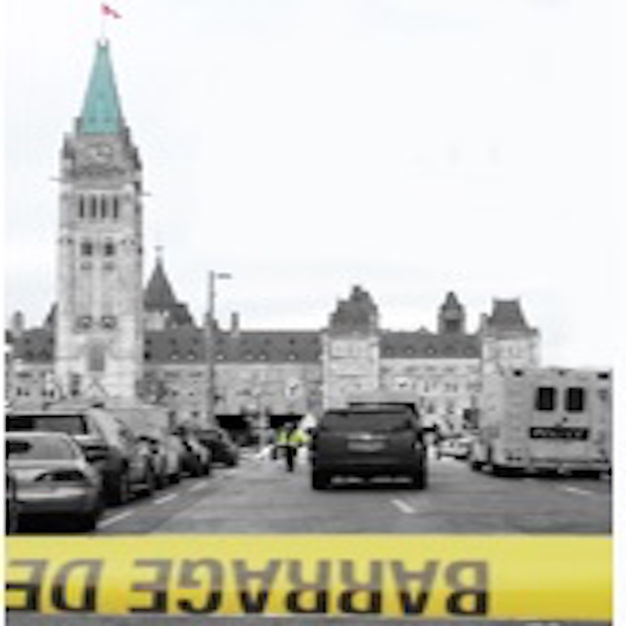 National Security Law
National Security Law
 The National Security Law Podcast
The National Security Law Podcast
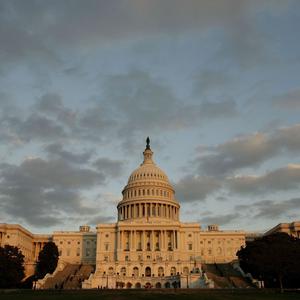 Just Security
Just Security
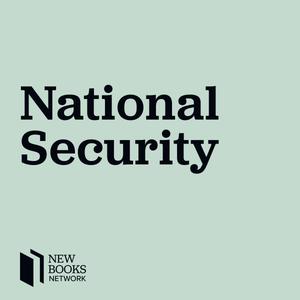 New Books in National Security
New Books in National Security
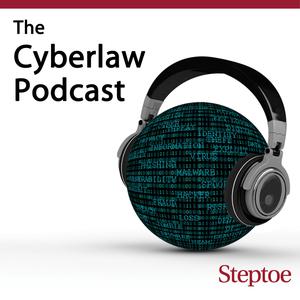 The Cyberlaw Podcast
The Cyberlaw Podcast
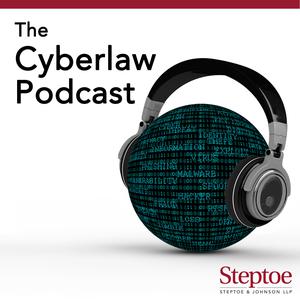 The Cyberlaw Podcast
The Cyberlaw Podcast